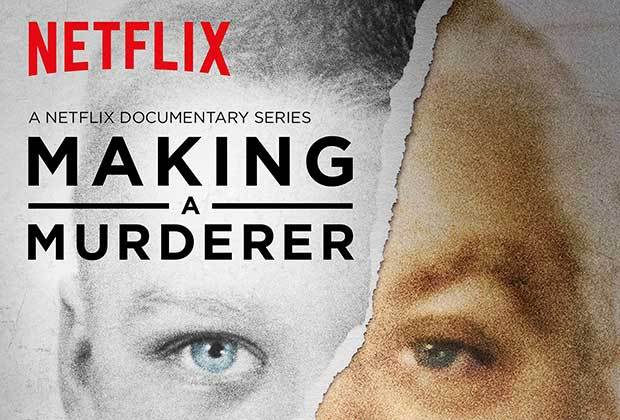Netflix’s controversial docu-series “Making a Murderer” has garnered an extraordinary amount of attention since its release last month. Celebrities from Alec Baldwin to Rainn Wilson have praised the series. Earlier this month President Barack Obama denied a petition calling for the release of the documentary’s two principle subjects.
“Making a Murderer” documents the trial, conviction and appeal process of Steven Avery, a Manitowoc County Wisconsin resident who spent 18 years in jail wrongfully convicted of sexual assault. He was released from prison in 2003 after being exonerated by new DNA evidence. In 2007 Avery was convicted again for the attempted murder of photographer Teresa Halbach. Avery’s nephew, Brendan Dassey, was also implicated in the murder and is serving life in prison.
The documentary’s producers, alongside Avery’s defense team and the Wisconsin Innocence Project, attempt to highlight evidence that law enforcement in Manitowoc County behaved inappropriately, interfered with the investigation and may have framed Avery for Halbach’s murder.
Daniel Blinka, Marquette Law School professor and former Wisconsin Special Prosecutor is not sold on Avery’s innocence. Despite not having watched the series, Blinka has followed and is well acquainted with the Avery case. His former student, Ken Kratz, served as the prosecutor in both Avery and Dassey’s cases and his former classmate, Len Kachinsky, was Dassey’s pretrial lawyer. Both of those men receive great scrutiny over the course of the documentary.
“I do not see anything that indicates that the trial judge got it wrong,” Blinka said.
He pointed to the physical evidence in the case tying Avery to Halbach. Blinka also noted that the defense never proposed an alternative perpetrator, even during the appeals process.
Kristina Lazzara, a junior in the College of Communication, also remains unconvinced of Avery’s innocence.
“Though the show does point out so many flaws in our legal system, I personally think he was guilty,” Lazzara said. “The evidence presented goes beyond what police could have planted.”
One of the most powerful moments in “Making a Murderer,” which received an immense deal of media attention, is the confession of Brendan Dassey. Many have accused the detectives involved in the case with feeding Dassey, a subdued teenager of below average intelligence, information on the case and coercing his testimony.
“There seem to be very serious questions about the interrogation of Brendan Dassey,” Blinka said.
He added that police “use a variety of techniques during an interrogation” and “can get them (suspects of lower than average intelligence) to say anything.”
Blinka recalled a case during his own career where he suspected that law enforcement may have fed information during an interrogation, a claim Dassey’s defense team frequently makes in his own case.
Another law professor, Lisa Mazzie, said that the real message of the documentary is not that Steven Avery is guilty or innocent, rather that there are real problems with the criminal justice system.
“I believe the point is more global,” Mazzie said. “It’s about the criminal justice system itself and how, when for whatever mix of reasons, the system believes it’s found its guilty party, the tendency seems to be guilty until proven innocent instead of innocent until proven guilty.”
Mazzie noted that law enforcement officials frequently made snide comments on camera about Avery’s guilt during the very beginning of the investigation. Ultimately, she said, Avery never had the presumption of innocence.
“It may very well be that Avery is guilty and that he should be in prison for killing Teresa Halbach, but the state needed to prove his guilt beyond a reasonable doubt,” she said. “Based on what I saw in the series, I think the state failed to do that.”
Avery is serving life without the possibility of parole. Governor Scott Walker has tweeted critically of the series and is unlikely to pardon either Dassey or Avery.
Even with the accusations of bias in how the series portrayed the members of the prosecution and the trial, Blinka said that the decisions of Avery’s defense to explore the possibility of Manitowoc law enforcement making efforts to frame him was warranted.
Despite his skepticism of the documentary’s conclusion, Blinka notes that there is value to “Making a Murderer.”
“I think it is healthy for the system to undergo this kind of review,” Blinka said.

